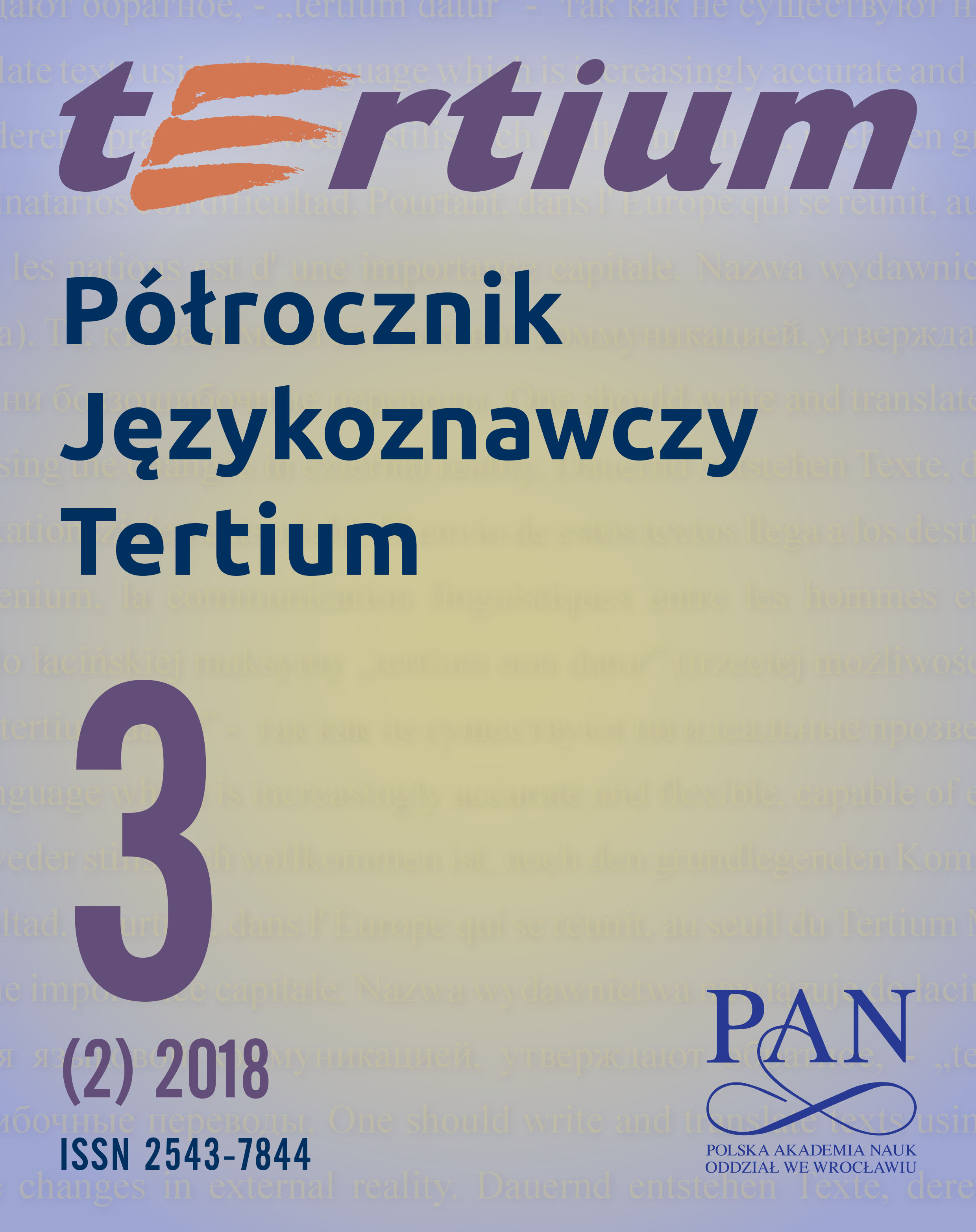Formy adresatywne a otwieranie się społeczeństwa.
Forms of Address in the Context of More Open Society.
A Study of 20th Century Norwegian Dramas
Author(s): Helena GarczyńskaSubject(s): Language and Literature Studies, Applied Linguistics, Studies of Literature, Pragmatics, Descriptive linguistics, Philology
Published by: Krakowskie Towarzystwo Popularyzowania Wiedzy o Komunikacji Językowej Tertium
Keywords: Norwegian drama; forms of address; communication;social change;
Summary/Abstract: Celem artykułu jest przyjrzenie się pewnym zmianom w komunikacji społecznej w Norwegii, dotyczącym form adresatywnych, czyli słów i wyrażeń używanych do zwracania się do rozmówcy. Ponieważ dramat wydaje się być najwłaściwszym materiałem do tego typu badań ze względu na nasycenie go formami deiktycznymi, typowymi dla dialogu mówionego, między innymi właśnie zaimkami i imionami własnymi, materiał do badań pochodzi z wybranych dramatów takich pisarzy ostatniego stulecia jak Henryk Ibsen (Hedda Gabler), Jens Bjørneboe (Til lykke med dagen, Tilfellet Torgersen, Dongery), Cecilie Løveid (Du, bli her!, Måkespisere, Vinteren revner) czy Jon Fosse (Gitarmannen, Nokon kjem til å komme, Dei døde hundane, Sa ka la). Przeanalizowane teksty wskazują na duże zmiany w systemie adresatywnym: usunięcie z języka większości barier komunikacyjnych (nierówności w obrębie zaimków, tytułów, asymetrii płciowej i nadmiernej uczuciowości), co z jednej strony komunikację ułatwia, z drugiej strony jednak egalitaryzacja nie wpływa na potrzeby społeczne samotnego człowieka, czyli jego chęć nawiązywania czy utrzymywania kontaktu. //The aim of this article is to take a closer look at certain changes in social communication in Norway, connected to forms of address, that is words and expressions one uses to address his or her conversation partner(s). Since dramatic texts seem to be the most adequate material for this sort of research, because of the deictic expressions typical for spoken dialogue they contain (among others: pronouns and proper nouns), the material this research is based upon comes from selected dramatic texts written by such playwrights of the previous century as Henrik Ibsen (Hedda Gabler), Jens Bjørneboe (Til lykke med dagen, Tilfellet Torgersen, Dongery), Cecilie Løveid (Du, bli her!, Måkespisere, Vinteren revner) or Jon Fosse (Gitarmannen, Nokon kjem til å komme, Dei døde hundane, Sa ka la). The analysed texts indicate significant changes in the addressative system: removal of most of the communicational barriers from the language (inequality regarding pronouns, titles, gender asymmetry and exaggerated emotionality), which, on the one hand, makes communication easier, and, on the other hand, one can consider that such egalitarisation does not influence the social needs of a solitary man or his/her willingness to establish or maintain contact.
Journal: Półrocznik Językoznawczy Tertium
- Issue Year: 3/2018
- Issue No: 2
- Page Range: 90-102
- Page Count: 13
- Language: Polish

